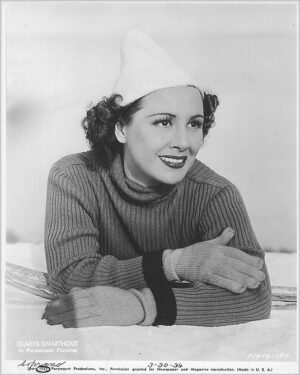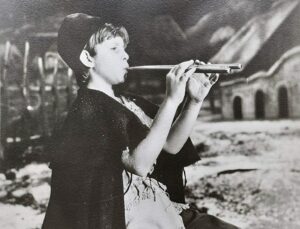The soldiers and townspeople… are treated as visitors from the world of the Id. They emerge from crevices in the floor and from rocks like moles or grubby Nibelungen. When Enrico, the evil brother, sings his threatening aria in the first scene, these creatures, their military uniforms draped in dirt-dark suggestions of Scottish garb (designed by Martin Pakledinaz), suddenly extend blood-covered hands to their fuhrer.
These figures don’t actually sing (the chorus was offstage), presumably so they can concentrate on their acting, which sometimes means doing mass impersonations of Quasimodo (Victor Hugo was one of Ms. Zambello’s inspirations). They also become frenzied with pleasure during the third act, rejoicing not over the nuptials, but because Normanno, the captain of the guard, is disdainfully showering them with gold coins; they scamper about like chimps gathering bananas….
June Anderson—who must have had black-and-blue arms by the evening’s end, so often was she grabbed and tossed abou—ang Lucia with more and more refined empathy as the opera proceeded. The customary edge in her voice was gone; she seemed absorbed both in the role and its dreamy lyricism. She delivered a mad scene that combined virtuosic control with a lovely, haunting innocence.
On this day in 1962 soprano Régine Crespin made her Metropolitan Opera debut as the Marschallin. Mezzo Hertha Töpper debuted as Octavian and Lotte Lehmann directed.
Happy 78th birthday mezzo-soprano Agnes Baltsa.


